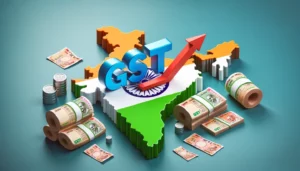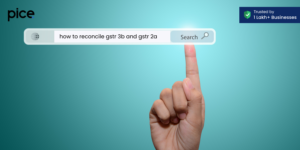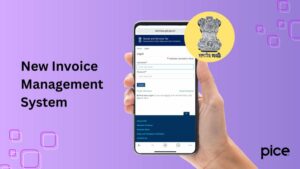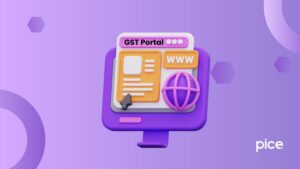Eligibility Criteria Under Input Tax Credit
- 20 Sep 24
- 10 mins
Eligibility Criteria Under Input Tax Credit
- Understanding Input Tax Credit (ITC) Under GST
- Who Is Eligible to Claim Input Tax Credit Under GST?
- Qualifying Input Tax Credit
- Conditions for Claiming Input Tax Credit
- Deadline for Claiming Input Tax Credit Under GST
- Necessary Documents for Claiming ITC
- Reversal of Input Tax Credit
- Items on Which Input Tax Credit Is Not Allowed
- The Bottom Line
Key Takeaways
- Input Tax Credit (ITC) under GST allows registered businesses to offset taxes paid on purchases against taxes due on sales, reducing overall tax liability.
- Eligibility to claim ITC requires valid tax invoices, receipt of goods or services, filing of GST returns, and payment of collected taxes to the government.
- ITC cannot be claimed for goods and services used for personal consumption, exempt supplies, or items specifically blocked under GST, such as motor vehicles for personal use.
- ITC must be claimed before 30th November of the subsequent financial year or the filing of the annual GSTR-9 return, whichever comes earlier.
- ITC reversal occurs if invoices are unpaid within 180 days, or if goods and services are used for non-business purposes, leading to an additional tax liability.
Input Tax Credit (ITC) refers to the Goods and Services Tax (GST) paid by a registered taxpayer on purchases of goods and/or services that are used or intended for business purposes. This credit can be offset against the GST due on sales, subject to specific conditions. However, it is crucial to understand that not all ITC qualifies for claims under GST regulations, as eligibility criteria must be met for a valid offset. In this blog, we will learn about the eligibility criteria, documents required to claim and conditions when you can claim ITC.
Understanding Input Tax Credit (ITC) Under GST
GST Input Tax Credit (ITC) is the tax a registered individual or business pays on purchases of goods and services used for furtherance of business. By allowing ITC, the GST liability on goods and services supplied is reduced, thus alleviating the overall tax burden for the registered person and ensuring a seamless flow of input credit under the GST regime.
For instance, if you pay ₹8,000 as input tax on your purchases and collect ₹12,000 as output tax on sales, your net tax payable will be ₹4,000 (₹12,000 - ₹8,000), thereby reducing your GST liability.
Who Is Eligible to Claim Input Tax Credit Under GST?
You can claim an Input Tax Credit (ITC) if you meet the eligibility criteria. Here are the key criteria for availing credit of tax paid:
- The dealer should possess a valid tax invoice.
- You should have received the goods or services.
- GST returns should have been filed.
- The supplier has paid the collected tax to the government.
- For goods received in multiple shipments, ITC can be claimed only upon receipt of the final instalment.
- You cannot claim ITC if you have claimed depreciation on the tax component of capital goods under the Income Tax Act, of 1961.
- If you are a registered person under the composition scheme, you cannot claim ITC.
Qualifying Input Tax Credit
There are a few common instances when you can claim an input tax credit, outlined for your convenience:
Input Tax Credit on Capital Goods
If a GST-registered entity purchases capital goods from a registered supplier for business purposes, the entity can claim ITC. The capital goods include machinery, furniture for office use, equipment and other goods for operating the business. Such goods should be capitalised in the books of accounts rather than being categorised as business expenses.
Input Tax Credit on Raw Materials
A GST-registered entity can claim ITC for raw materials used for production purposes in business. The raw materials include metals, chemicals, wood and other raw materials for manufacturing purposes. For instance, if you buy raw materials at a 5% GST rate, you can claim ITC for the same amount as it is treated as inputs for your business.
Input Tax Credit on Input Services
A GST-registered entity can claim ITC on GST paid on services used for business purposes. These services include logistics services, telecommunication services, banking and insurance services.
Conditions for Claiming Input Tax Credit

Under Section 16 of the CGST Act, registered persons can claim input tax credits for goods and services purchased for business. Here are the conditions that allow the registered person to claim ITC:
- The registered person should match the eligibility criteria.
- If a recipient cannot pay the supplier within 180 days of the invoice issuance date, ITC will be added to output tax liability with chargeable interest.
- You cannot claim ITC after the last date of filing GST returns.
- One cannot claim ITC for exempt supplies or taxable supplies of goods and services used for non-business purposes.
- You cannot claim ITC for block credits under Section 17(5) of the CGST Act.
Deadline for Claiming Input Tax Credit Under GST
The deadline or time limit for claiming input tax under GST is earlier than the dates as follows:
- 30th November of the subsequent financial year
- The date for filing the annual return in Form GSTR-9 for the relevant financial year, which is 31st December.
💡 If you want to pay your GST with Credit Card, then download Pice Business Payment App. Pice is the one stop app for all paying all your business expenses.
For example, if you are a regular taxpayer with a purchase invoice dated 20th July and seeking to claim ITC for the financial year 2022-23, you must do so before 30th November 2023. Alternatively, you must claim ITC before filing your annual return for 2022-23, which is due by 31st December 2023, whichever comes first.
Necessary Documents for Claiming ITC
Here is a list of documents that you need to possess to claim Input Tax Credit:
- Supplier-issued invoices of goods and services
- Debit note that suppliers issue to recipients
- Bill of entry
- Invoices that suppliers issue instead of tax invoices if the amount does not exceed ₹200 or when the reverse charge mechanism applies under the GST law
- Invoice or credit note that an input service distributor issues
- Bill of supply that the supplier of goods and services issues
Reversal of Input Tax Credit
Similar to the conditions for claiming ITC, there are situations when ITC is reversed. Here are the ITC reversal situations that you need to know:
- Non-payment of invoices within 180 days: Suppliers issue invoices for purchases by buyers. If invoices remain unpaid beyond 180 days from the issuance date, it forms a situation for ITC reversal.
- Seller issues credit note to input service distributors or ISD: If a seller or supplier issues a credit note to input service distributors, there is an ITC reversal for the reduced input tax credit.
- Inputs used partially for business purposes: If you use inputs for non-business purposes such as exempt supplies and for personal use, the part of inputs used for non-business purposes will be subject to an ITC reversal.
- Capital goods partly used for non-business purposes: If you use capital goods for non-business purposes like personal use or exempt supply, the proportion of capital goods used will exhibit an ITC reversal.
- Insufficient ITC reversal: If after filing annual returns, the ITC for non-business purposes is more than the ITC reversed, the excess amount adds up to the output liability. Further, interest is chargeable on the excess amount.
Items on Which Input Tax Credit Is Not Allowed
There are several items that are not eligible for input tax credit claims. Here is a list of such items:
- Conveyances and motor vehicles when they are not used for supply, transportation of passengers and goods and providing training
- Cosmetic and plastic surgery, health services, beauty treatment, outdoor catering services, food and beverages are excluded from ITC claims when they are not used for taxable composite supply or mixed supply
- A club’s membership fees, health and fitness centre fees
- Rental cab, life insurance and health insurance when they are not used as outward supply that is taxable or taxable composite or mixed supply
- Travel concessions or travel benefits to employees on vacation for travelling to home
- Works contract services when there is a supply of immovable properties
- When a taxable person receives goods and services for immovable property construction other than machinery and plants
- If tax has been paid under the composition scheme for goods and services
- When you use goods and services for personal use
- Stolen goods, lost goods, destroyed goods, written off or disposed of goods, gifts and free samples
- Tax paid towards short payment, excessive refund, suppression, fraud, confiscation and misdeclaration
- Goods and services that you use for making exempt supplies are deemed not eligible for input tax credit
- Goods or services, or both, received by a non-resident taxable person, excluding any goods imported by them
The Bottom Line
To safeguard your Input Tax Credit (ITC) from reversal, ensure that invoice payments are completed within 180 days of issuance. Additionally, you must use business inputs and capital goods only for business purposes to avoid ITC reversal. Reducing the issuance of credit notes by sellers can also help you keep your ITC claims intact. For optimal results, carefully select goods and services for business use to ensure that all eligible input tax credit is accurately claimed.
 By
By 

















